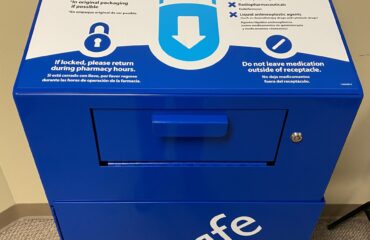Vaccines – How do they work?
With flu season coming in, it is important that everyone gets their flu vaccine. We all understand that getting the vaccine will prevent us from getting the flu, but how do vaccines work?
First, let’s go over the different types of vaccines. There are 6 different types of vaccines:
- Live-attenuated vaccines: these vaccines contain a small living amount of the germ that actually causes the disease. The amount isn’t enough to get you sick but it is enough for the body to create a defense against it. Vaccines under this type include: MMR (measles, mumps, rubella), smallpox, chickenpox, yellow fever, and rotavirus.
- Inactivated vaccines: similar to live-attenuated except the germs are dead. Inactivated vaccines include flu, polio, rabies, and Hepatitis A.
- Subunit vaccines: instead of containing the whole bacteria or virus, these vaccines contain fragments of the germ. The body will still create a response against them. Subunit vaccines include Hepatitis B, human papillomavirus, and shingles.
- Toxoid vaccines: instead of the whole germ or fragments of the germ, these vaccines contain the toxin, or the harmful product, of the germs. Toxoid vaccines include tetanus and diphtheria.
- Virus-delivered vaccines: these vaccines use a virus to deliver the instructions to create a fragment of the germ. The body will build a defense against the fragment similar to subunit vaccines. Virus-delivered vaccines include the Johnson & Johnson COVID-19 vaccine.
- mRNA vaccines: similar to the virus-delivered vaccines except instead of a virus, the instructions are held in a bubble made of fat that will fuse with cells. Again, the body will create a defense against the fragment that is created. mRNA vaccines include the Pfizer and Moderna COVID-19 vaccines.
Even though there are 6 different types, vaccines all end up working similarly. In general, vaccines introduce a small amount of germs into the body. The body’s immune system will recognize that the germs don’t belong inside the body and will get rid of them. Afterwards, the immune system will build up a defense against the germs so next time the body runs into those germs, it will be quicker at recognizing and getting rid of the germs. A quicker response means we won’t get sick as easily. Vaccines are important to get because they will not only prevent you from getting sick but getting them will also protect family and friends from getting sick too.

